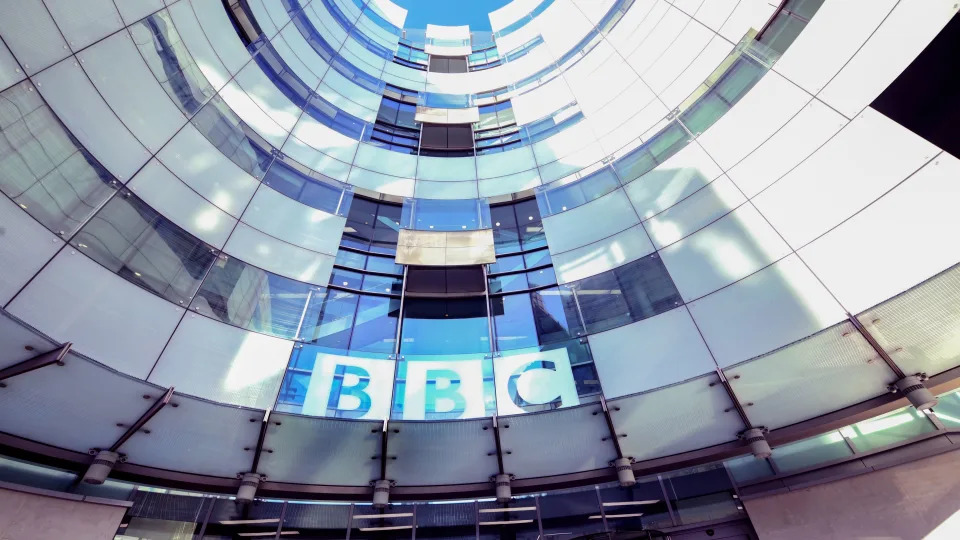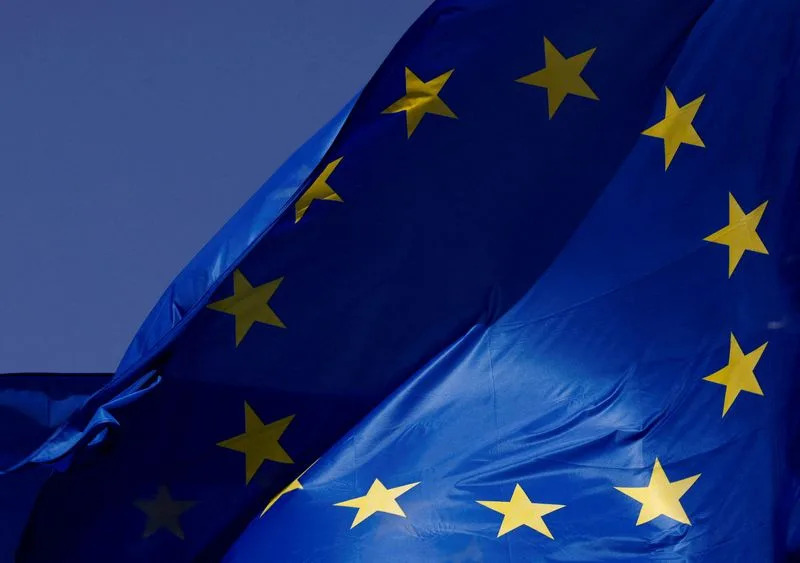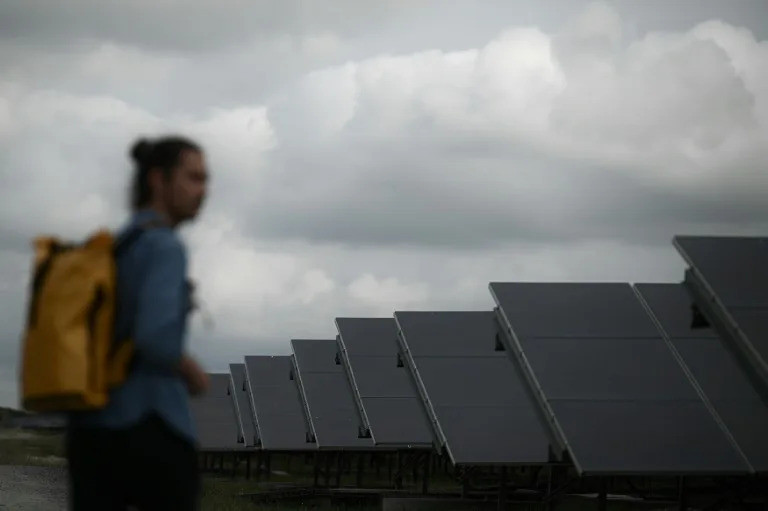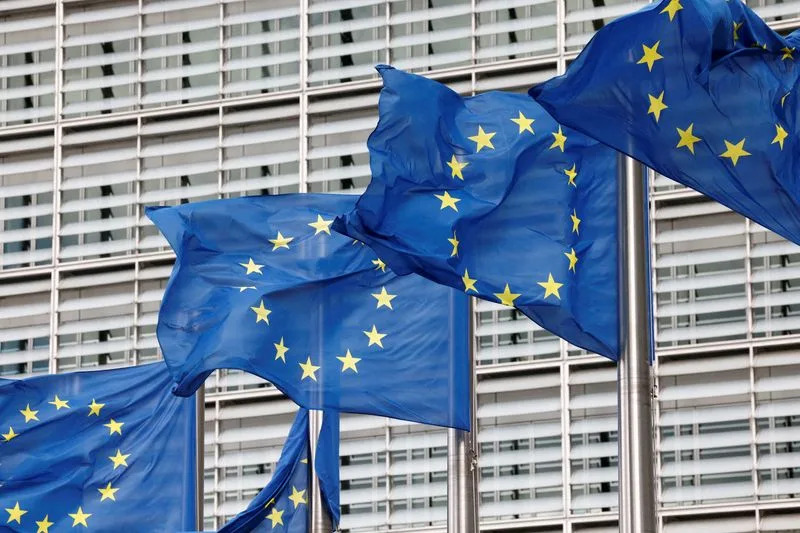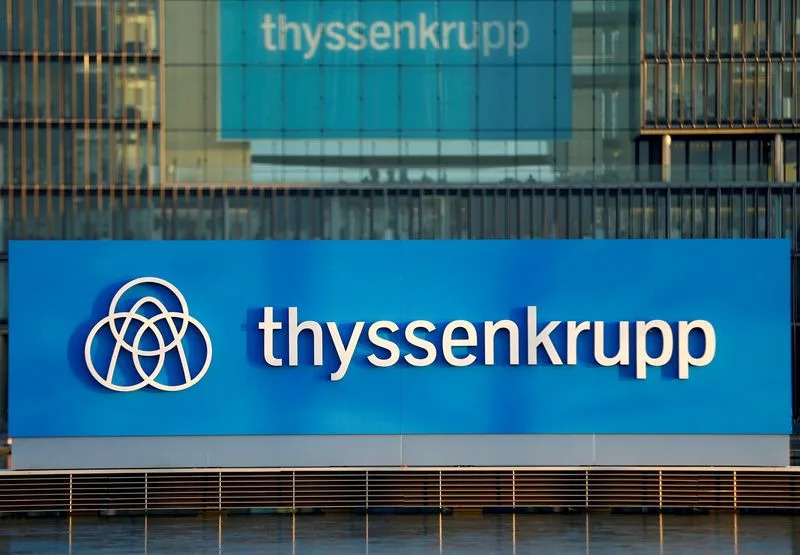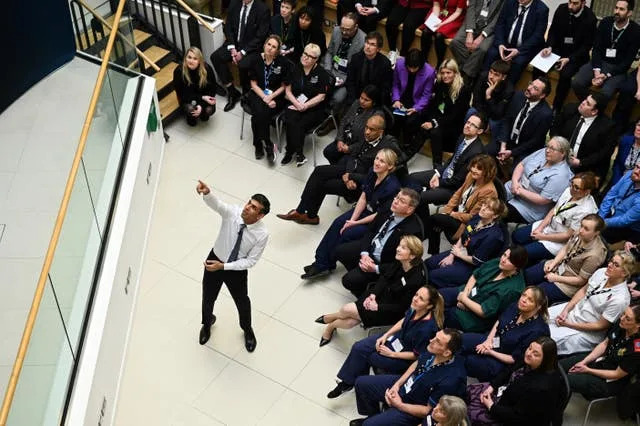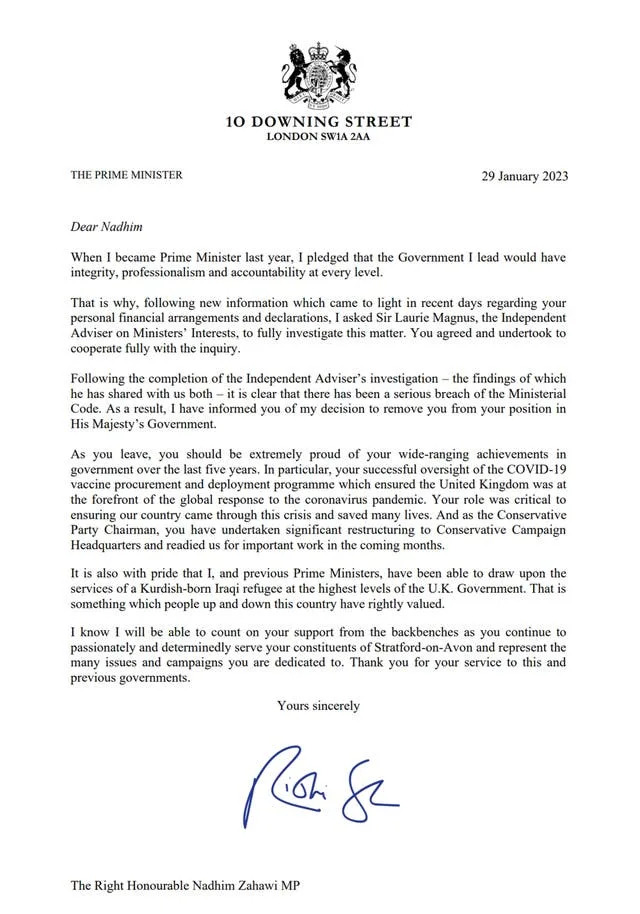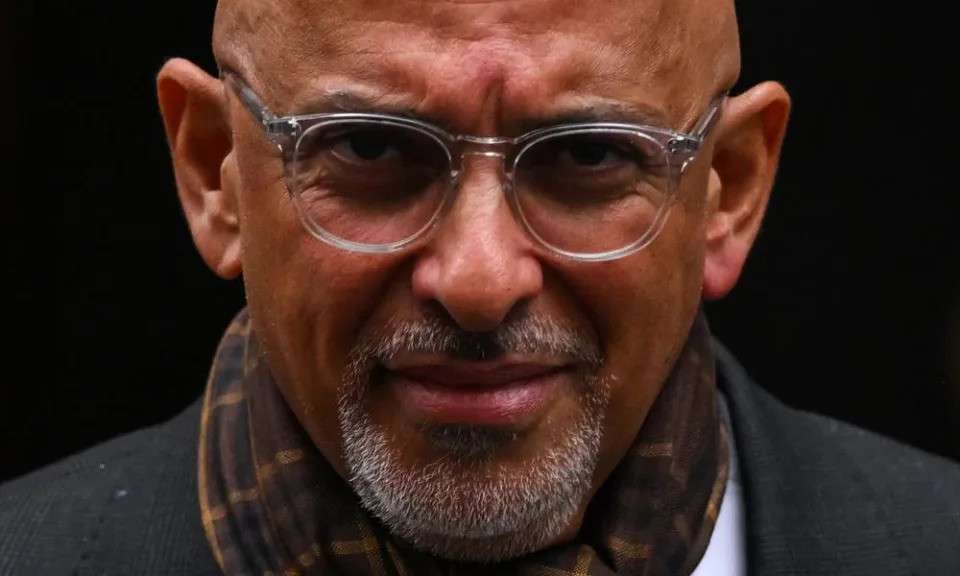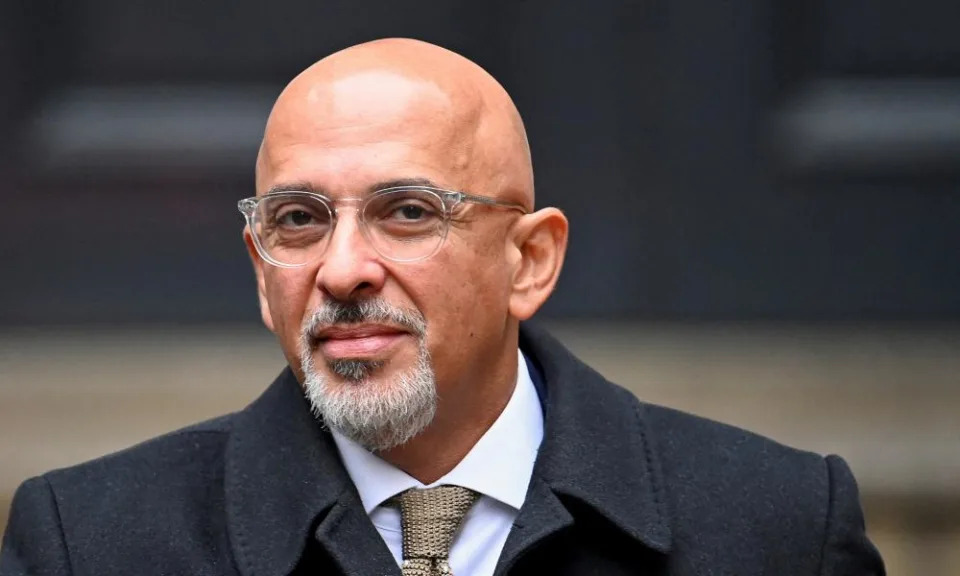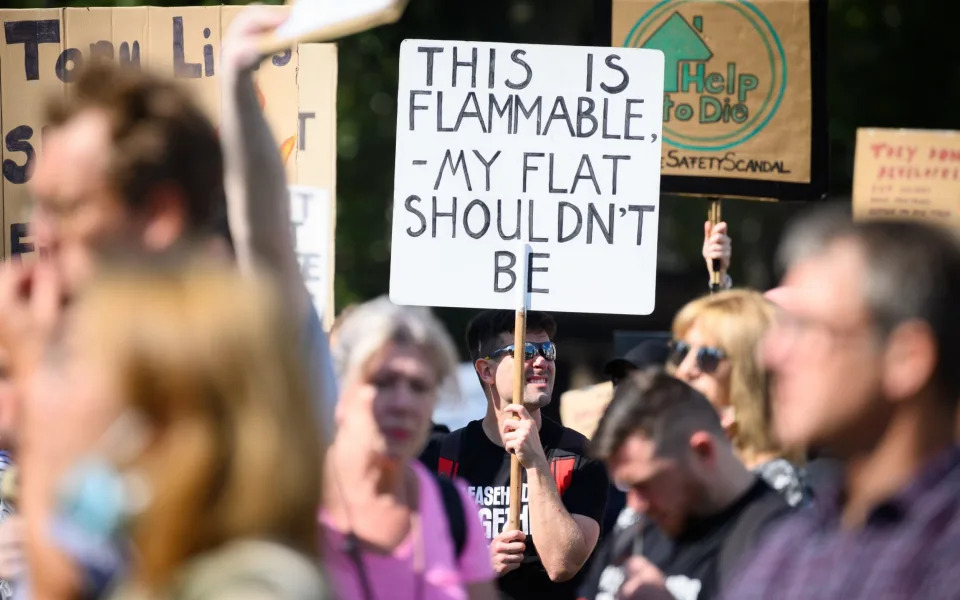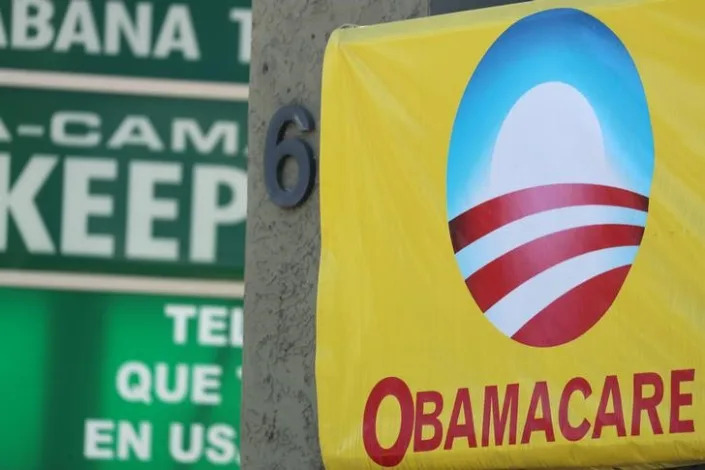
The logo of the Adani Group is seen on the wall of its realty office building on the outskirts of Ahmedabad
By Isla Binnie
Mon, January 30, 2023
NEW YORK (Reuters) - An advocacy group focused on the impact of debt markets on climate change called on Monday for major bond investors to shun India's Adani Group, saying a critical report by a short-seller had undermined confidence in the company's governance.
U.S. firm Hindenburg Research prompted a multi-billion-dollar sell-off in the Indian group's stocks last week by launching accusations of improper use of offshore tax havens and high debt. Billionaire chairman Gautam Adani, one of the world's richest people, dismissed these as baseless.
Activist groups participating in a campaign called Toxic Bonds said they had written to money managers, including BlackRock, Allianz and Pimco, to reject new investments or credit arrangements with Adani, and publicly divest their holdings.
Spokespeople for the Adani Group, BlackRock, Allianz and Pimco did not immediately respond to requests for comment.
Green bonds, used to raise funds for specific projects that are seen to benefit the environment, are one of Adani's sources of financing.
Hindenburg's findings "undermine any confidence investors could have that proceeds from Adani's planned green issues this year would be adequately ringfenced," Nick Haines, campaign manager for SumOfUs, an investor advocacy group signed up to the campaign, wrote in a copy of the letter sent to Reuters.
Adani's empire includes interests in coal, a major contributor to greenhouse gas emissions. Its Carmichael mine in eastern Australia produces around 10 million tonnes of coal for export every year.
It has said it will invest more than $50 billion in green hydrogen - a carbon-free fuel many hope can reduce emissions from heavy industry. But the letter said the risk was any investment would prop up high-emitting activity.
"The interconnected financial nature of the Adani Group makes it clear that buying debt from any subsidiary of Adani, is by extension supporting Adani's mining businesses," Haines said in the letter.
(Reporting by Isla Binnie; editing by Barbara Lewis)
Activists Ask Bondholders to Stop Funding Adani’s Coal Empire

Caleb Mutua
Mon, January 30, 2023
(Bloomberg) -- An activist organization is asking bond investors to stop funding Adani Group unless the beleaguered Indian conglomerate “unequivocally halts its coal expansion” and adopts a plan to cut carbon emissions.
In October, Billionaire Gautam Adani’s group was looking to raise at least $10 billion in new debt in 2023 to help refinance high-cost borrowings and fund projects in the pipeline, Bloomberg reported in October. But its debt has come under intense scrutiny following a report by short seller Hindenburg Research, fixing investor attention in the months ahead on a string of bond interest deadlines.
Adani Group didn’t immediately respond to a request for comment.
SumOfUs, an activist group that runs digital campaigns intended to apply pressure to powerful corporations, sent a letter to executives at some of the largest bond buyers — including BlackRock Inc., Pacific Investment Management Co. and Invesco Ltd. — urging them not to participate in new bond deals from the group and to divest from Adani firms. Adani’s empire, largely built on coal mining, “has come at the cost of human rights violations and environmental destruction,” they said.
“The interconnected financial nature of the Adani Group makes it clear that buying debt from any subsidiary of Adani, is by extension supporting Adani’s mining businesses,” the activist group said in a letter signed by Nick Haines, a campaign manager at SumOfUs.
Adani’s wide-ranging group was built on a bedrock of coal, and it continues to be central to his business. But the billionaire wants to recast the empire into a renewable energy giant. The conglomerate has committed to invest a total $70 billion by 2030 across its green energy value chain to become the world’s largest renewable energy producer.
Adani group’s borrowing plans include issuing green bonds, whose proceeds are used to fund environmentally-friendly projects. Hindenburg’s findings undermine any confidence investors could have that proceeds from the green deal “would be adequately ringfenced,” Toxic Bonds said in the letter reviewed by Bloomberg.
SumOfUs is a member of Toxic Bonds initiative, a network of civil society organizations that helps track and stop the trillions of dollars of risky debt financing the climate crisis.
It’s “inconceivable” that major Adani bondholders would touch new debt from Adani, which has been shown to flout all three pillars of ESG with coal expansion, human rights violations and now fraud, Alice Delemare, coordinator of Toxic Bonds initiative, said in an emailed response to questions on Monday.
Adani’s $70 billion pledge isn’t meaningful compared with Adani’s rapidly growing coal operations, according to the Toxic Bond initiative.
“Adani cannot claim to be committed to transition whilst planning new coal mines and thermal power projects,” they wrote.
--With assistance from P R Sanjai.
By Chris Kay and P R Sanjai
September 12, 2022
Early one evening in April, Asia’s newly minted richest person strode onto the stage of the National Centre for the Performing Arts, in Mumbai. Stocky and mustachioed, Gautam Adani was there to deliver a speech at the India Economic Conclave, a gathering of the country’s financial elite.
Historically media shy, Adani’s become more prominent in recent months, and not just because of the meteoric surge in his wealth. A rapid diversification spree has pushed his vast, largely fossil-fuel driven conglomerate into a raft of new sectors in and outside of India, and Adani is seeking to reinvent himself for the global stage.

Gautam Adani built his fortune on coal.
His public appearances now have renewed purpose: to persuade the world – especially the gatekeepers of global capital markets needed to fund his grand ambitions – that a coal tycoon is now a champion of green energy.
Though Adani isn’t the only coal baron attempting such a pivot, he’s by far the richest and one of the most influential, with close ties to Prime Minister Narendra Modi, India’s most powerful leader in decades. Surging energy prices and a breathtaking jump in the shares of his listed companies have pushed Adani’s fortune to an estimated $US143 billion ($209 billion) – only Elon Musk and Jeff Bezos are wealthier. But it’s his alignment with Modi, who like Adani hails from the prosperous coastal state of Gujarat, that has been the foundation of the tycoon’s empire. It’s also what could become Adani’s Achilles heel, as he seeks to move into a world that increasingly values environmental considerations over Modi’s mantra of economic development.
Adani’s speech to the India Economic Conclave, then, was careful to pay homage to both camps.

Billionaires
Adani vs Ambani: Asia’s two richest men on a collision course
“India is on the cusp of decades of growth that the world will want to tap into. Therefore, there can be no better defence of our interests at this time than atmanirbhar,” Adani said in the Mumbai address, using the Hindi term for self-reliance — the same nationalist theme that Modi often emphasises in his speeches. Rising global demand for green energy, he went on, will be a “game changer” for the country. “For India, the combination of solar and wind power coupled with green hydrogen opens up unprecedented possibilities.”
Seen as closer to the prime minister than any other billionaire, Adani’s central business strategy over the past decade has been to bolster Modi’s efforts to develop India’s $US3.2 trillion economy. He has synchronised his corporate ambitions with government priorities, most significantly by doubling down on coal as Modi promised to bring reliable electricity to more Indians. The alignment extends to foreign affairs. In 2021, Adani began construction on a major port facility in Sri Lanka; according to officials from both countries, the plan was encouraged by the Modi government, which wants to curb Chinese influence on the nearby island. Whether building expressways or upgrading data centres, Adani can be counted on to provide money, infrastructure, or expertise, whatever the policy priority.
While Adani, 60, has said he doesn’t receive or expect special treatment from the government, that alignment has served him well. Shares of his seven listed firms have seen hefty gains this year, lifting their combined market value to some $US255 billion, about 7 per cent of the overall Indian market. Among the top 10 billionaires tracked by Bloomberg globally, Adani is one of only two whose fortune hasn’t declined in 2022 – and the only one that’s primarily been fuelled by coal.
Adani’s now using those financial resources to supercharge his ambitions, the centrepiece of which is a commitment to invest $US70 billion by 2030 in green energy infrastructure. Last month, his group also unveiled $US7.2 billion of investment in alumina and iron-ore projects and recently acquired the Indian operations of cement-maker Holcim for $US10.5 billion. Other forays include moves into media and digital services, airports, data centres and telecommunications.
As long as Modi remains in charge, and Adani’s companies keep generating enough cash to offset the significant debt he’s accumulated to fund expansion, his position appears robust – at least within India, according to Tim Buckley, the director of the Sydney-based Climate Energy Finance think tank and a long-time observer of the billionaire. “His political power, his ability to understand the lay of the land in India, is second to none,” Buckley said. “The organisation works very, very effectively, unlike a lot of Indian competitors, and they get things done.”

Adani has been a target of environmental activists around the world. CREDIT:BLOOMBERG
Beyond India, however, Adani’s power is less assured. And that’s where his grandiose bet on renewables comes in. The $US70 billion pledge is the blueprint that Adani hopes will make his empire the world’s largest producer of clean power by the end of the decade. Yet his green investments so far still pale in comparison to his fossil-fuel exposure, a dichotomy that risks undermining Adani’s quest to be taken seriously on the world stage.
According to SumOfUs — an activist organisation that runs digital campaigns intended to apply pressure on powerful corporations — Adani’s mining operations account for at least 3 per cent of global carbon-dioxide emissions from coal. The Adani Group declined to comment on this figure, and for this story more broadly. “It’s hard not to see Adani’s green investments as anything but cover for his company’s coal expansion,” said Nick Haines, a SumOfUs campaign manager in Melbourne, “or at best having his cake and eating it too”.
Adani’s wide-ranging group was built on a bedrock of coal, and it continues to be central to is business. The main Adani units that rely on the fuel account for 62 per cent of his conglomerate’s revenue. Coal is a domestic resource, one critical to Modi’s ambitions for self-reliance, and Adani is India’s largest private developer of coal mines. In a 2019 interview with Bloomberg News, Adani insisted that India’s economic goals would be impossible to achieve without coal power, which must “play a big role” in expanding electricity generation capacity. The country is the world’s third-largest carbon emitter, after China and the US, and while Modi has signed on to targeting net-zero emissions, his 2070 timeline lags China’s by 10 years, and the US and UK by two decades.
As global asset managers move to decarbonise their portfolios, speeches extolling the ambition of Adani’s green-energy plans may not be enough to keep the money flowing.
While Adani says boosting India’s energy security is behind his new green play, the billionaire’s experience in Australia may at least partially explain the shift. Adani is developing a large mine in Queensland to augment Indian supplies, and the pushback he’s seen there shows the challenge he’ll likely face expanding his influence beyond India’s borders. Lawsuits, protests, and government inquiries repeatedly delayed Carmichael, as the project is known, since it was proposed more than a decade ago; in 2020, Adani’s Australian mining unit pleaded guilty to misleading environmental authorities over land-clearing at the site, drawing a fine of $US20,000 ($29,000). Banks such as Goldman Sachs Group ruled out providing loans for the project, forcing Adani to finance the mine himself.
Carmichael involves a major port expansion in environmentally sensitive waters, and activists believe it poses an unacceptable risk to wildlife as well as the Great Barrier Reef. They’re also concerned about what a major investment in Australian coal production will mean for India’s power mix. Carmichael began exporting coal earlier this year, feeding soaring demand for the fuel in India as temperatures soared this summer.
Yet during the 32-minute speech at the India Economic Conclave, Adani hardly mentioned coal. Part of his motivation for ramping up public appearances, people familiar with the billionaire’s strategy say, is to change the perception of his business, better aligning himself with asset managers — and lenders — who are making green energy and ESG a priority. The Adani Group says it has a pipeline of 20.4 gigawatts of clean-power projects, equivalent to about 20 per cent of current US solar capacity. But just over a quarter of that is operational, primarily in the form of solar and wind farms in Indian states including Karnataka in the south and Uttar Pradesh in the north.
At the same time, the company is almost doubling its coal-fired power capacity to 26 gigawatts, according to environmental non-profit group Market Forces, and is still pursuing natural gas projects.
RELATED ARTICLE

Coal
Adani mine ramps up production amid surging coal, energy prices
For the immediate future, at least, that’s where the money is. Energy-supply constraints caused by the war in Ukraine have pushed coal prices to multi-year highs, and the International Energy Agency expects global demand to set annual records through 2024. European countries including Germany and the Netherlands are reopening coal plants to make up for tighter stocks of natural gas.
In late May, after attending the World Economic Forum in Davos, Switzerland, Adani couldn’t resist something of an I-told-you-so. “Developed nations that were setting targets and giving stern lectures about climate change to the rest of the world now appear to be less censorious as their own energy security is threatened,” he posted on LinkedIn.
Building this empire has required borrowing on a scale rarely seen in India. The Adani Group has about $US8 billion of foreign-currency bonds outstanding, the most of any Indian business, according to data compiled by Bloomberg. The group’s combined net debt was 1.6 trillion rupees ($29 billion) as of end-March, according to company data. The Adani Group, however, says it’s deleveraged consistently over the past few years and its metrics are healthy.
This enormous scale has raised some questions about the group’s activities in India — and its relationship to power. Without any experience in aviation, Adani won bids to operate a raft of airport facilities through a federal government tender about three years ago.

Adani has close close ties to India’s Prime Minister Narendra Modi.
More recently, lawmakers sought an investigation into whether a series of Mauritius-based funds, which were some of the largest investors in Adani companies, were being used to stoke the astonishing share surges that have propelled them to among the highest multiples in India. The Indian department overseeing import and export regulations is probing the matter, and the capital markets regulator is examining compliance with securities rules, India’s junior finance minister told parliament last year. Representatives of Adani have said the group complies with all regulatory requirements and has made required disclosures.
Outside India, Adani faces a different experience, as the situation in Australia showed. Though he has made other forays overseas, and partnered with French oil giant TotalEnergies SE – which pledged to invest $US7.3 billion in Adani businesses, including his renewable energy and green hydrogen units – expansion will expose Adani to a level of scrutiny he’s never seen before.
As global asset managers move to decarbonise their portfolios, speeches extolling the ambition of Adani’s green-energy plans may not be enough to keep the money flowing.

Queensland courts
Court orders environment activist to give mining giant Adani all files it wants
Right now, shares in Adani companies are able to command a premium “because they are the only green energy and infrastructure-focused group in India that offers global investors access to these businesses through their listed companies,” said Deven Choksey, managing director at Mumbai-based brokerage KRChoksey Holdings Pvt
“Yet as global investors become more sensitive to what makes a viable green investment, they’re more likely to ask hard questions. Like why Adani is already expanding production at Carmichael, aiming to raise its annual output by 50 per cent more than originally approved by its board in 2019. The tycoon may have to commit to exiting coal in order to realise his empire-building ambitions, says Buckley at the Climate Energy Finance think tank. “He’s no mug, he will totally roll with the punch,” he said. “ESG 2.0 is coming and that doesn’t mean greenwash, it means you’ve actually got to walk the walk.”
Bloomberg

